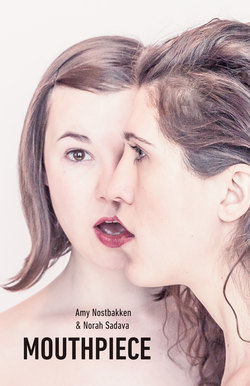Читать книгу Mouthpiece - Norah Sadava - Страница 6
На сайте Литреса книга снята с продажи.
An Introduction
Оглавлениеby Michele Landsberg
There’s nothing more challenging for a vintage feminist today than to convey the kind of constraints we endured before the so-called Second Wave of feminism came along. The passively accepted tyranny of girldom and boydom that regulated every minute detail of life: only girls had flowers on their birthday cake (flowers were feminine); only boys played sports in any organized way; only boys took second helpings and only boys were comfortable in their own skins. As teenagers, we went along with the choking conformity of clothing; we completely accepted rape jokes and the necessity for girls to laugh merrily at them. We girls inhaled division and restriction with every breath and had no more thought of rejecting sexism than of rejecting breathing itself. Our main task was to be pretty and to attract boys; if that same prettiness and attraction led to our deflowering and hence pregnancy, we might as well kill ourselves, so profound was the social humiliation. Of course, we were also despised as ‘cockteasers’ and accused of leaving boys with the dreaded ‘blue balls’ if we protected our sacred virginity. Double bind? It was our daily life.
With syncopated movement, song, and spoken (and howled) words, two women – writers and performers Amy Nostbakken and Norah Sadava – summon up this painful past and our present moment.
With astonishing fluidity, they evoke an earlier version of femininity and, simultaneously, their own complicated rejection of it. The lead character(s) in the play – two females, both merged into one and also divided – portray a thirty-something contemporary woman who has just awakened, metaphorically voiceless, to the knowledge of her mother’s death and her appalling duty of writing her mother’s eulogy for the imminent funeral.
The two voices unite and divide in a riveting duet. The women first appear onstage in a bathtub, comically elided – the legs emerging at one end of the tub do not belong to the woman whose head appears at the other. It’s the scene-setting visual joke that prepares us for the complex interplay to come. Both are dressed in plain, white, one-piece bathing suits, making them appear almost more exposed and vulnerable than if they’d been naked.
The bathtub is a useful prop. Twice the women ask men in the audience – in elaborately high-pitched, cooing, cajoling voices and with mincing steps – to move the bathtub for them. A few seconds later, they’re hefting it lightly and absent-mindedly by themselves.
As the woman struggles to sum up her mother’s life for the compulsory eulogy – a doormat! So perfectly groomed! Always smiling! She never ate a french fry! All those copies of Vogue magazine! – she is torn between her filial love and her rejection of her mother’s feminine role. It’s the perfect way to embody the distance we’ve come and the distance we still have to go, because, of course, she has soaked up, willy-nilly, so many of her mother’s values. It’s a universal condition, as we can easily recognize from the groans of recognition and shouts of rueful laughter from the audience.
The fast-paced performance is a perfect blend of singing (eerie fluting, bursts of opera, Bulgarian chants), wisecracks, and wrenching monologue/duologue, along with a precisely choreographed athletic performance that veers from ballet to Wrestle-Mania. Among the sharpest and most painful passages are when the women rapidly exchange the most filthily misogynist bar jokes and the humiliatingly sexist taunts of men on the street.
There’s hardly a facet of a modern woman’s life left unremarked upon in this deft and searching work. Amy Nostbakken and Norah Sadava have found a wonderfully apt form to express the dilemma of contemporary feminism, without once dipping into academic jargon or movement rhetoric. The whole of our predicament is expressed in the constricted throats of these two women, tightened with grief, fury, and frustration. The audience carries the unanswered questions with them as they leave with the last line in their ears: ‘Huh, huh, huh, we’ve come so far now and we’ll never go back to …’
